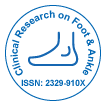Наша группа организует более 3000 глобальных конференций Ежегодные мероприятия в США, Европе и США. Азия при поддержке еще 1000 научных обществ и публикует более 700 Открытого доступа Журналы, в которых представлены более 50 000 выдающихся деятелей, авторитетных учёных, входящих в редколлегии.
Журналы открытого доступа набирают больше читателей и цитируемости
700 журналов и 15 000 000 читателей Каждый журнал получает более 25 000 читателей
Индексировано в
- Google Scholar
- Шерпа Ромео
- Открыть J-ворота
- Академические ключи
- РефСик
- Университет Хамдарда
- ЭБСКО, Аризона
- OCLC- WorldCat
- Публикации
- Женевский фонд медицинского образования и исследований
- Евро Паб
- ICMJE
Полезные ссылки
Журналы открытого доступа
Поделиться этой страницей
Абстрактный
Consequences of Car Driving on Foot and Ankle Mobility and Reflexes
Yves Jammes, Jean Paul Weber and Michel Behr
Car driving could induce fatigue and an altered sensorimotor control of foot muscles. Also, the use of a cruise controller (CC) or an adaptive cruise controller (ACC) could delay the brake reaction time when an emergency braking response is needed. The literature brings very few information on fatigue of the leg muscles during prolonged car driving and no data was found on any lengthened brake reaction time in CC/ACC condition. We recently showed that 1 hour driving at constant speed (120 or 60 km/hour) induced fatigue of the tibialis anterior (TA) muscle. TA fatigue was associated with a reduced myotatic reflex, a situation which reduced the sensorimotor control of muscles maintaining the foot on the accelerator pedal. Driving in CC/ACC condition increased the amplitude of leg displacement during emergency braking and markedly lengthened the brake reaction time, increasing the braking distance. The brake reaction time increased with age in the CC/ACC condition. Thus, car driving modifies the sensorimotor control of foot muscles and the use of new tools to control the speed of a motor vehicle significantly lengthens the brake reaction time. This could result from an increased amplitude of leg motion and/or an age-related decrease in reflex control.
Журналы по темам
- Биохимия
- Ветеринары
- Генетика и молекулярная биология
- Геология и науки о Земле
- Еда и питание
- Иммунология и микробиология
- Инженерное дело
- Клинические науки
- Материаловедение
- медицинские науки
- Науки об окружающей среде
- Общая наука
- Сельское хозяйство и аквакультура
- Социальные и политические науки
- Уход и здравоохранение
- Фармацевтические науки
- Физика
- Химия

 English
English  Spanish
Spanish  Chinese
Chinese  German
German  French
French  Japanese
Japanese  Portuguese
Portuguese  Hindi
Hindi